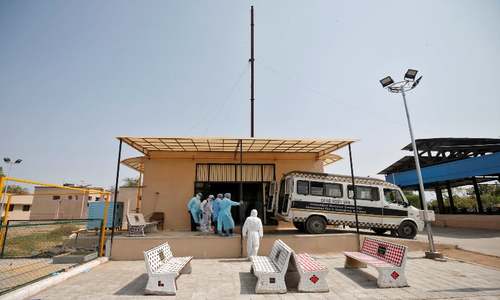India's coronavirus infections surpass China, but contagion slowing

India’s total novel coronavirus cases rose to 85,940 on Saturday, taking it past China, where the pandemic originated last year, though a strict lockdown enforced since late March has reduced the rate of contagion.
State leaders, businesses and working class Indians have called on Prime Minister Narendra Modi to reopen the battered economy, but the government is expected to extend the lockdown, which would otherwise expire on Sunday, though with fewer restrictions.
So far the death rate in India appears far better, according to health ministry data, with 2,752 fatalities reported, compared with China’s 4,600. The toll in the United States, United Kingdom and Italy is much higher.
Health Minister Harsh Vardhan was also encouraged by the slowing rate of infection, as it now takes 11 days for the number of cases to double, whereas before the lockdown cases were doubling every 3.5 days.
“Clearly the situation has improved due to lockdown. We have utilised this period of lockdown to accelerate public health measures such as case detection, contact tracing, isolation and management of cases,” Vardhan said.
Indian officials say the low death rate could be because a majority of people infected with the virus were either asymptomatic or had mild symptoms and that the vast shutdown imposed early on had helped avoid a major catastrophe.
Read: Mystery of India's lower death rates seems to defy coronavirus trend
A third of the infections are from Maharashtra, with Mumbai the worst hit, followed by Tamil Nadu, Gujarat and Delhi.
These are also the most important economic centres of the country, complicating the government’s task as it tries to re-open without triggering a big spurt in infections.
“India is still in the growth phase, since total cases are still rising. Active cases are growing at 3.8 per cent (daily) — and this needs to fall to zero per cent and decline subsequently for the country to recover overall,” Shamika Ravi, a Brookings expert and former member of the Indian Prime Minister’s Economic Advisory Council, said.
One area of concern has been India’s low testing in relation to its large population, public health officials say. The country has ramped up testing since the beginning of April to 100,000 this week, but with 1.3 billion people on a per capita basis it is trailing far behind other major countries such as the United States, the United Kingdom and Italy.













































